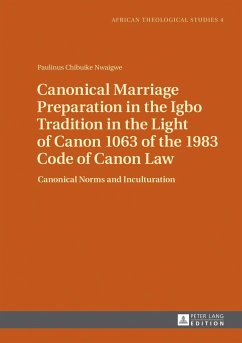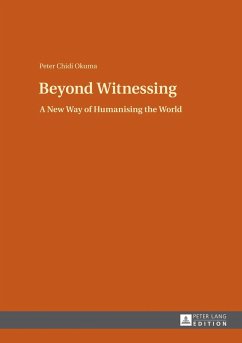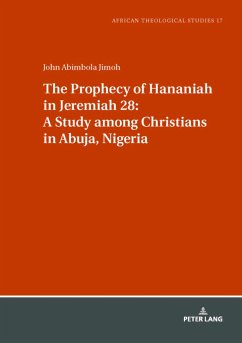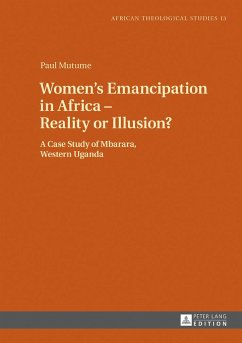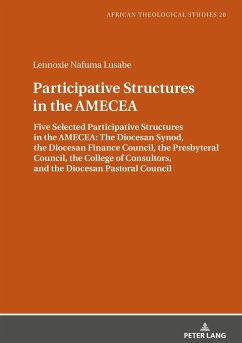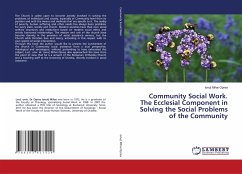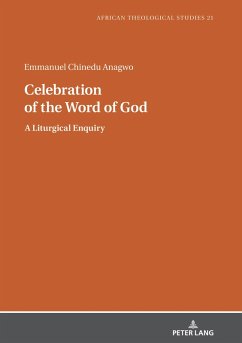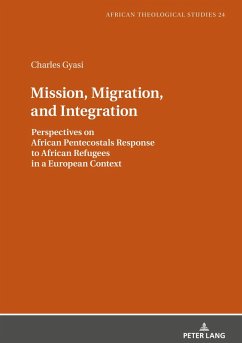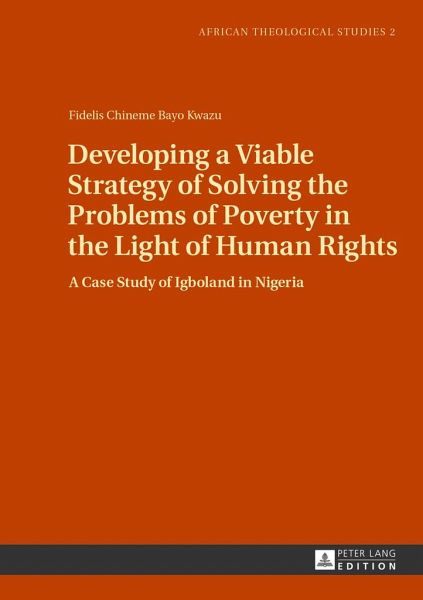
Developing a Viable Strategy of Solving the Problems of Poverty in the Light of Human Rights
A Case Study of Igboland in Nigeria
Versandkostenfrei!
Versandfertig in 6-10 Tagen
78,85 €
inkl. MwSt.

PAYBACK Punkte
0 °P sammeln!
Poverty is a multi-dimensional concept which is complex in its origin as well as in its manifestations. Oppression and denial of Human Rights can contribute to poverty. However, this oppression and exploitation of the poor is not to be understood simplistically but as a systemic injustice rooted within the context of well organized socio-political and cultural structures of oppression. This study is a concerted effort to identify, articulate and highlight the existence, the causes and effects of poverty in Nigeria, particularly in Igboland, where Human Rights infringements have contributed to ...
Poverty is a multi-dimensional concept which is complex in its origin as well as in its manifestations. Oppression and denial of Human Rights can contribute to poverty. However, this oppression and exploitation of the poor is not to be understood simplistically but as a systemic injustice rooted within the context of well organized socio-political and cultural structures of oppression. This study is a concerted effort to identify, articulate and highlight the existence, the causes and effects of poverty in Nigeria, particularly in Igboland, where Human Rights infringements have contributed to poverty. It also aims at alerting the respective governments to their administrative inadequacies that are contrary to social ethics and have given rise to poverty. It concludes by discussing viable strategies of alleviating poverty in Igboland.





